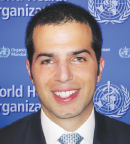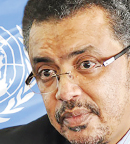The World Health Assembly (WHA)—the decision-making body of the World Health Organization (WHO)—adopted a long-expected cancer resolution at its 2017 meeting, the body’s first resolution on cancer in 12 years and the first to emphasize, among other issues, the accessibility and affordability of cancer care.
Cancer is the second leading cause of death globally. About 70% of cancer deaths worldwide occur in low- and middle-income countries, where death rates for cancer are rising more rapidly than elsewhere, according to the WHO. A long list of international groups, including the Union for International Cancer Control and the European Society for Medical Oncology, advocated for passage of the cancer resolution by the Assembly. In addition, 18 cosponsoring countries and more than 20 additional countries spoke in favor of it, reflecting a broad consensus that cancer control requires increased attention and funding as a public health priority.
Clear Message
“The resolution sends a very clear message that access to high-quality, cost-effective cancer services needs further prioritization to reduce the burden of cancer globally and to achieve the UN Agenda for Sustainable Development goals,” said André Ilbawi, MD, Technical Officer in WHO’s Department for Management of Noncommunicable Diseases, Disability, Violence, and Injury Prevention. The sustainable developmental goals include reducing premature mortality from cancer and other noncommunicable diseases by one-third by the year 2030.

Comprehensive cancer control requires strong collaboration and the engagement of all stakeholders.— André Ilbawi, MD
Tweet this quote
The resolution addresses a variety of issues. Its basic theme is the importance of an integrated approach to cancer care, and it urges Member States to improve and scale up access to prevention, early diagnosis, treatment, palliative care, psychosocial care, and survivor follow-up. It also calls on Member States to ensure adequate resources to support implementation of national cancer control plans and to strengthen health systems. It urges attention to tobacco control and vaccinations to prevent infections associated with cancer. And it urges development and implementation of evidence-based protocols for cancer management in adults and children.
The resolution also requests that the Director General develop “the first periodic public health– and policy-oriented world report on cancer in the context of an integrated approach, based on the latest available evidence and international experience, and covering the elements of this resolution….” The report will be prepared jointly with the International Agency for Research on Cancer and published in 2019.
Emphasis on Affordability
A recurring theme throughout the 2017 resolution is the availability and affordability of cancer care. The 2005 resolution mentioned affordability only once, in reference to chemotherapy drugs for human immunodeficiency virus (HIV)/acquired immunodeficiency syndrome (AIDS)–related cancers in developing countries. The 2017 resolution refers to affordability in 8 of its 40 clauses, including “increased access to affordable, safe, effective, and quality medicines and diagnostics and other technologies.”

Ricardo Barros

Dr. Tedros Adhanom Ghebreyesus
Affordability was also on the minds of WHO Member State delegates and other speakers during discussion of the final resolution. “We need to bring cancer fully into the discussion of access and affordability,” said Brazil’s delegate, Minister of Health Ricardo Barros.
The resolution also addresses the pricing of pharmaceuticals, requesting that the Director General “prepare a comprehensive technical report … that examines pricing approaches, including transparency, and their impact on availability and affordability of medicines for the prevention and treatment of cancer … and options that might enhance the affordability and accessibility of these medicines.”
The exact wording of this paragraph was in contention until shortly before the WHA convened, according to a blog post from the Union for Affordable Cancer Treatment (UACT).1 Along with a number of other organizations and individuals, UACT had asked WHA to support a feasibility study on the “progressive delinkage of the costs of research and development from the price of cancer medicines.”
In the final resolution, the reference specifically to delinkage was gone. But, the Union for Affordable Cancer Treatment blog noted that “options that might enhance the affordability and accessibility of these medicines remain, as does a report on the ‘relationship between inputs throughout the value chain and price setting.’”
Promoting Partnerships
In other provisions, the resolution urges Member States to continue to promote partnerships “between government and civil society,” and it requests that the Director General foster and strengthen partnerships with international and nongovernmental groups, both to “scale up cancer prevention and control” and to foster “the development of effective and affordable new cancer medicines.”
Promoting partnerships has long been an important strategy for WHO, which works with nongovernmental organizations in countries across the globe. ASCO, for example, collaborates with international physicians to teach courses in cancer control for primary care providers in low- and middle-income countries.
Other partners are philanthropic and academic organizations and government agencies, such as the National Cancer Institute (NCI), part of the U.S. Department of Health and Human Services. The NCI funds international cancer research and works to build a global cancer research community through its Center for Global Health. Another part of the NCI, the Division for Cancer Control and Population Science, funds implementation research at the international level as well as in the United States.
At its meeting, the WHA also elected a new WHO Director-General, Dr. Tedros Adhanom Ghebreyesus, a former health minister of Ethiopia, who traveled to the United States the following month to meet with key partners and funders.
“Our core functions include fostering partnerships, setting standards, and providing technical guidance,” Dr. Ilbawi said. “Comprehensive cancer control requires strong collaboration and the engagement of all stakeholders. The cancer resolution gives a clear, renewed mandate for WHO to work with partners and improve access to quality cancer care for all.” ■
DISCLOSURE: Dr. Ilbawi reported no conflicts of interest.
REFERENCE
1. Ress M: Delinkage, transparency, watered down, but not entirely gone, in WHA cancer resolution. Available at https://cancerunion.org/2017/05/19/wha-closes-text-in-cancer-resolution. Accessed June 19, 2017.

